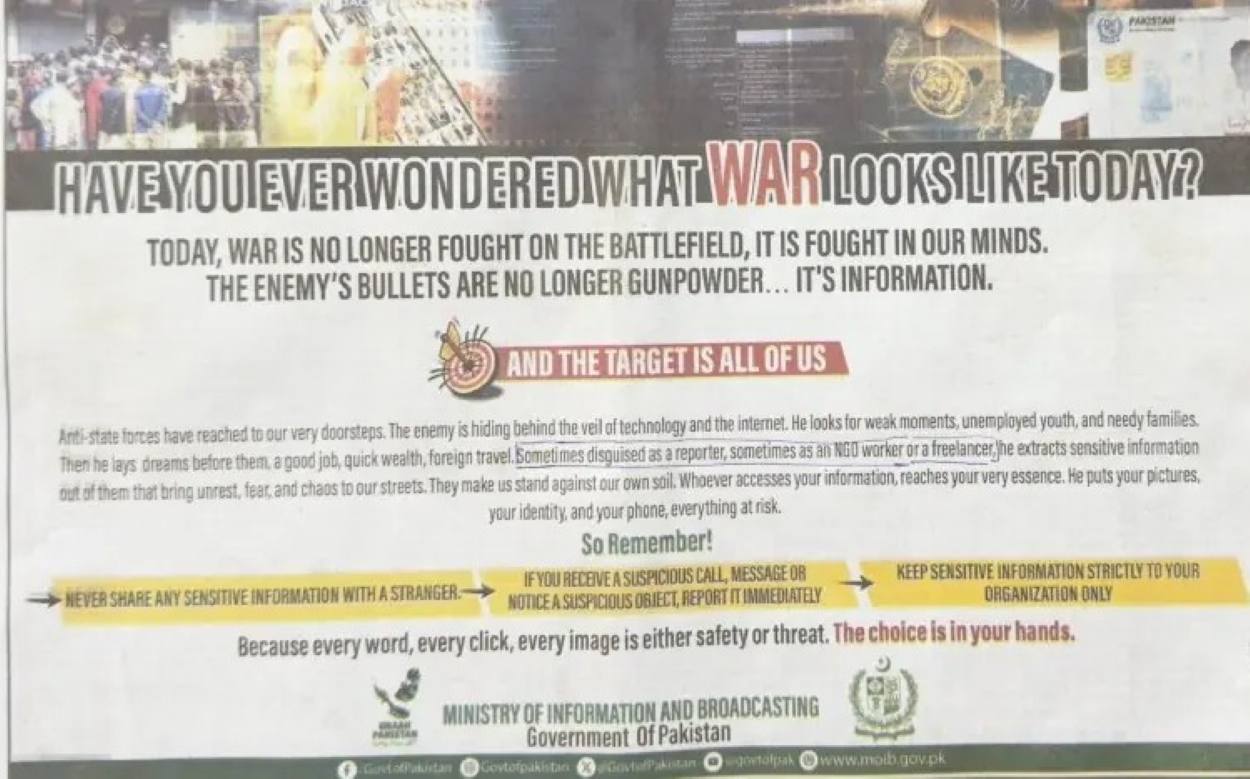Pakistan’s Ministry of Information published a half-page advertisement in major newspapers, triggering widespread backlash. The ad labels journalists, freelancers, NGO workers, and civil society actors as potential “threats” or tools of “enemy propaganda” in the context of “information warfare.” Consequently, media and rights groups condemned it as a direct attack on press freedom.
The ad’s headline reads, “Have you ever wondered what war looks like today?” It claims, “War is no longer fought on the battlefield but in our minds. The enemy, disguised as a reporter or NGO worker, extracts sensitive information to sow unrest, fear, and chaos.” Such language, critics argue, endangers journalists already facing harassment.
Freedom Network, a leading media watchdog, issued a strong rebuke. “Whoever created this ad has endangered journalists and civil society workers by depicting them as national security threats,” the group stated. Additionally, it is described as “reckless and dangerous,” especially amid existing pressures on the media.
Freedom Network, @HRCP87, and other rights groups have condemned a government advertisement in major newspapers for portraying journalists, freelancers, NGO workers, and civil society actors as “threats” or instruments of “enemy propaganda.” https://t.co/XuhCT1L1lC
— Asad Ali Toor (@AsadAToor) October 3, 2025The organisation highlighted the ad’s impact, noting it stigmatises journalists and undermines independent media. “This violates press freedom under Article 19,” Freedom Network asserted. They warned that the campaign fuels hostility against those providing reliable information.
Similarly, the Human Rights Commission of Pakistan (HRCP), alongside Women’s Action Forum (Lahore), Shirkat Gah-Women’s Resource Centre, South Asia Partnership-Pakistan, Simorgh, and the Centre for Legal Aid, Assistance and Settlement (CLAAS), condemned the ad. They labelled it a dangerous escalation in the government’s crackdown on dissent.
Read: Islamabad Police Raid National Press Club, Attack Journalists
The ad coincides with heightened government scrutiny of social media and independent voices. For instance, recent moves to curb online dissent have intensified, raising concerns about freedom of expression. The HRCP and others argue that portraying journalists as enemies risks further violence and intimidation against them.






